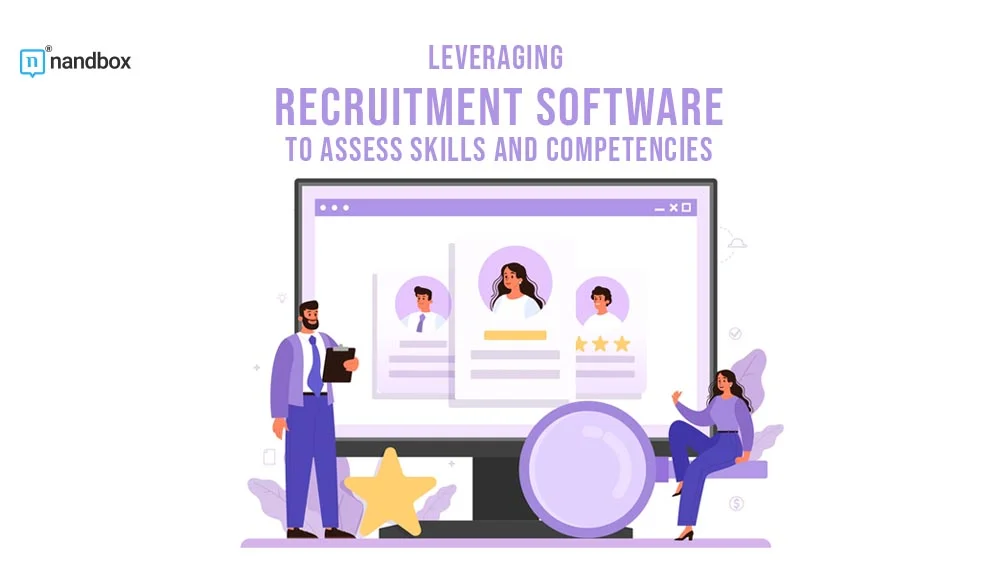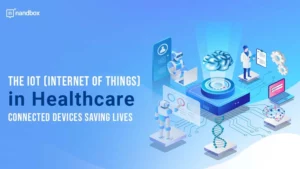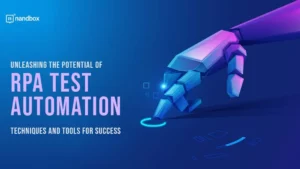Leveraging Recruitment Software to Assess Skills and Competencies
One constant is critical for success in the ever-changing corporate landscape: recruiting the appropriate staff. When employees have the knowledge and abilities needed for their jobs, organizations succeed. Traditional hiring procedures, however, frequently fail to adequately evaluate these crucial characteristics. A ground-breaking innovation that transforms how businesses identify and assess individuals’ talents and competencies. Discover the benefits of recruitment software in assessing skills and competencies.
What is Recruitment Software?
Hiring software is a technological advancement to streamline the recruitment process. So, with the help of these recruitment software solutions, HR’s optimize the screening and get a proper insight into candidates.
On the other hand, it is referred to as applicant tracking systems (ATS) or talent acquisition software. It offers businesses a centralized platform to control communication, candidate applications, candidate screening, and tracking throughout the hiring process.
Modern recruiting software helps firms effectively find top talent through skill and competency evaluations, going beyond handling administrative activities. It is equipped with multiple features that help organizations streamline their recruitment process.
From the Benefits of Recruitment Software: Screening and Reporting Using Recruitment Software:
Technical Skills Assessments:
Technical skill assessments are critical in current recruitment processes, and recruitment software has become a must-have tool in this regard. Organizations can use recruitment software to create customized assessments to assess a candidate’s technical expertise, such as programming languages, software competency, data analysis, or any other specialized skills required for the role. For instance, utilizing an Excel skills test can help determine a candidate’s proficiency with Excel, a common requirement for many positions.
The software automates the evaluation process, objectively rating candidate responses and providing essential data to recruiters in order to discover the most suitable prospects.
Campus Recruitment Software:
Xobin’s Campus Recruitment Software allows you to design and administer pre-employment tests and assessments in campus that are tailored to the unique skills and competencies required for certain roles.
For skills-based assessments, organizations can use recruitment software to design customized exams to examine candidates’ technical talents and knowledge related to the job post, and different roles necessitate different skill sets for Role-specific Assessments. Recruitment software allows for customized assessments depending on the individual needs of each position.
Technical knowledge evaluations, cognitive abilities, problem-solving simulations, and behavioral assessments are examples of these examinations. The software scores and evaluates candidate responses automatically, providing recruiters with objective data to assess a candidate’s suitability for the role.
Psychometric Assessments:
Recruitment software integrates behavioral and situational tests to measure competencies such as adaptability, communication, and decision-making. Real-world scenarios linked to the job they are looking for may be given to candidates. Their answers and behaviors in these simulations are analyzed, revealing information about their problem-solving abilities, interpersonal skills, and reactions to difficult situations.
Software-driven scenario examinations examine candidates’ decision-making and problem-solving abilities in real-world settings they may face on the job. Psychometrics assessments can also assess a candidate’s soft skills, such as communication, teamwork, and flexibility, as well as their alignment with the company’s values and culture.
AI-powered Skill Evaluation:
AI-powered algorithms are frequently used in recruitment tools to analyze candidate data like resumes, cover letters, and assessment responses. AI can recognize keywords related to certain talents and abilities, allowing recruiters to quickly choose candidates with suitable qualifications. One such feature is AI Evaluate. Answer evaluation has always taken several hours of the hiring manager’s and recruiter’s time. To effectively automate this procedure, Xobin’s AI Evaluate employs cutting-edge Generative AI.
Furthermore, AI-driven evaluation helps anticipate a candidate’s likely work performance based on historical data from successful hires, improving candidate selection accuracy and finding top talent.
Candidate Analytics and Reporting:
Recruitment software collects and analyzes data from various assessments, digital interviews, and interactions with candidates. This candidate analytics and reporting function gives recruiters a comprehensive perspective of each candidate’s strengths and limitations, allowing them to make data-driven hiring decisions.
Recruiters can assess candidates’ performance, discover trends, and rank prospects based on their skills and competencies in relation to job criteria.
What Skills and competencies does recruitment software assess?
Skills and competencies are critical factors in determining a candidate’s suitability for a certain role and organizational fit. Assessing these characteristics enables recruiters and hiring managers to make informed decisions about matching the top talent to the right job.
Before diving into the workings of recruitment software, it’s essential to understand the key skills and competencies that employers should focus on during the hiring process. Different roles require specific skill sets, and assessing these competencies ensures that candidates are the right fit for the job and the company culture.
Technical expertise:
Technical expertise refers to the unique abilities and knowledge needed to perform job-related tasks competently. For professions that require specialized knowledge, such as software development, engineering, data analysis, or graphic design, evaluating a candidate’s technical skills is critical.
So, to evaluate the candidate’s practical application of technical knowledge use coding tests, competency exams, or simulations in screenings. As a result, it will give you a clear report on their skills insights.
Problem-Solving Skills:
Problem-solving skills assist employees in analyzing difficulties, identifying solutions, and making effective decisions. Candidates with great problem-solving abilities can deal with complex situations and contribute to the success of the organization.
So, HR’ s should create situational scenarios or case studies to use in an assessment. In result, it allows candidates to demonstrate their analytical thinking and decision-making abilities.
Communication Skills:
Effective communication is a need for teamwork, relationship building, and clearly communicating ideas. Communication skills may include verbal, written, or interpersonal abilities, depending on the role.
Recruiters can employ behavioral interviews, written tests, or group conversations to assess communication abilities, allowing candidates to demonstrate their ability to convey information, actively listen, and engage with others effectively.
Adaptability and Flexibility:
In today’s fast-paced business environment, adaptability and flexibility are highly valuable skills. Candidates that can swiftly adapt to new conditions, learn and use new skills, and thrive in fast-paced work environments can be tremendous assets to a company.
Therefore, to determine their flexibility and desire to embrace change, include scenario based questions in the evaluation.
Leadership Skills:
Leadership skills are essential for roles that entail managing teams, directing projects, and driving organizational growth. Candidates with high leadership potential exhibit characteristics such as strategic thinking, emotional intelligence, and the capacity to motivate and inspire others.
Recruiters, especially GTM recruiter who are often working across departments and with various stakeholders, need to demonstrate strong leadership to navigate complex hiring needs. This can involve building consensus among hiring managers, advocating for top talent, and fostering a collaborative environment throughout the recruitment process.
Conclusion
In conclusion, there are a lot of benefits of recruitment software in today’s competitive employment market, employing recruitment tools to analyze abilities and competencies is a game changer. So, organizations may make data-driven, unbiased, and efficient hiring decisions by utilizing technology-driven assessment tools.
On the other hand, the main benefits of recruitment software include time and cost savings, more objectivity, and improved candidate experiences. So, we believe HR’s should focus on a tool that helps streamline recruitment at its best.







